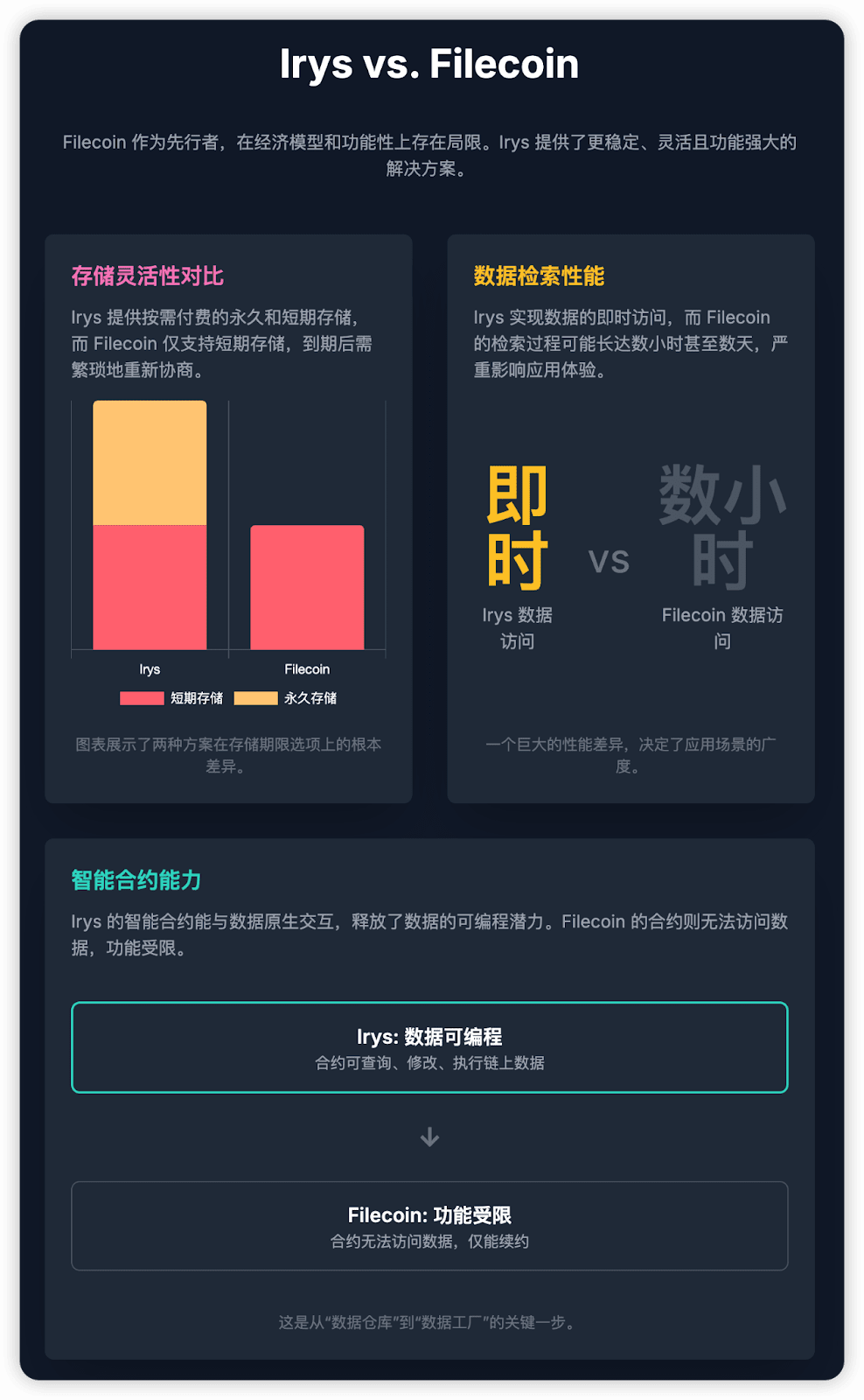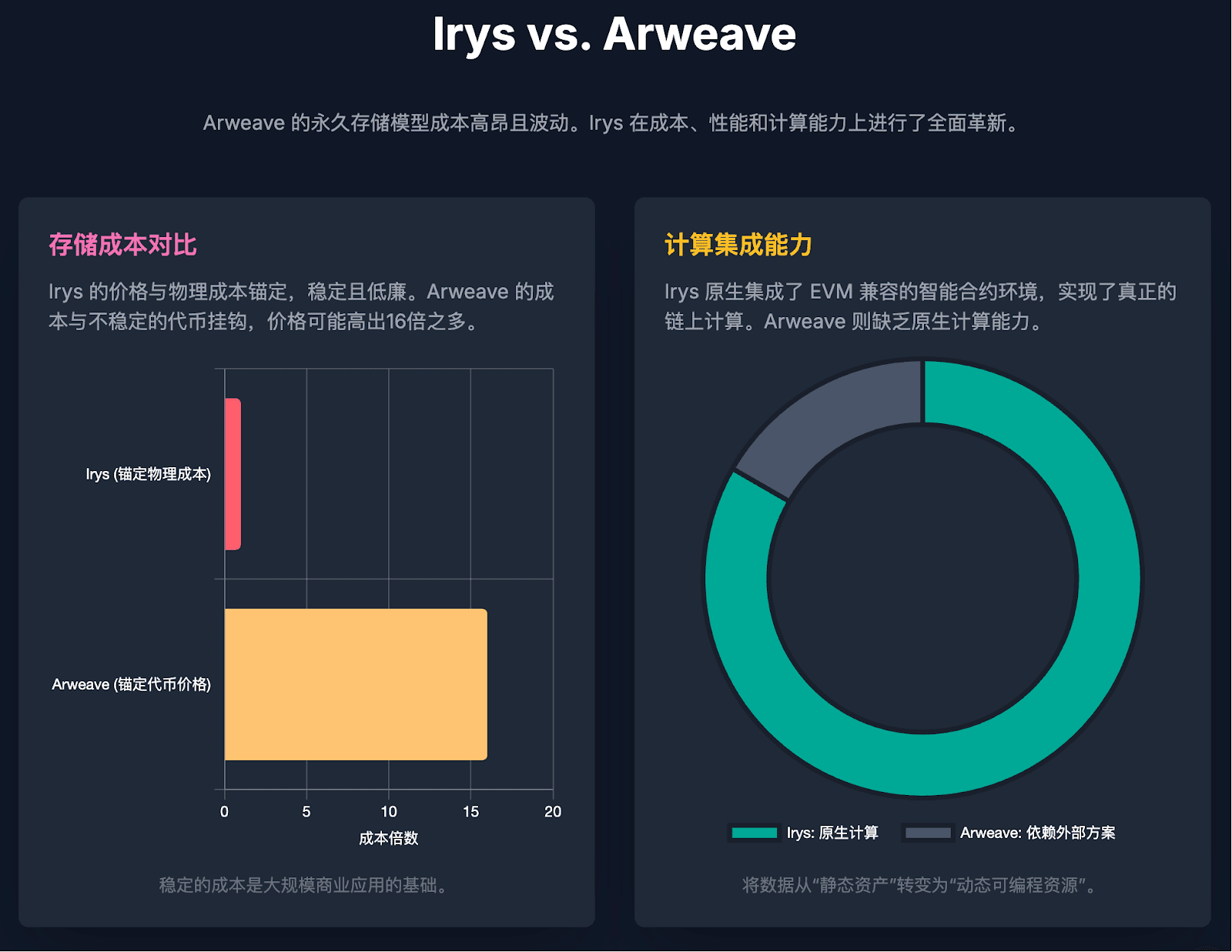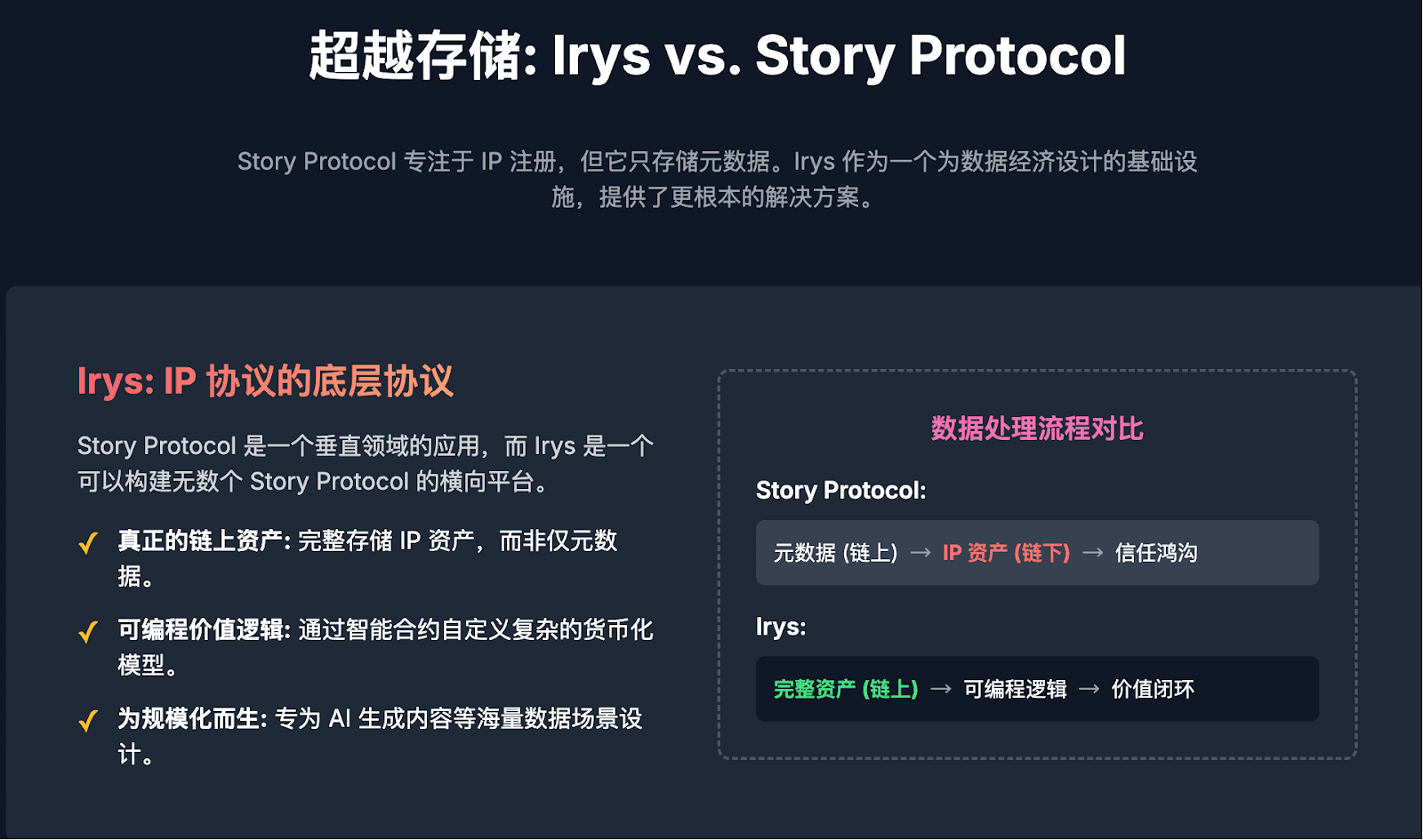Irys is an innovative decentralized data chain aimed at creating value for creators through data. How a data chain that unlocks data value can generate value for its creators. Below, we will delve into the core differences between Irys and other mainstream solutions.
Compared to Filecoin, Irys offers more stable economic incentives, flexible permanent and short-term storage options, and smart contracts that can interact natively with data, addressing Filecoin's core shortcomings in performance, cost predictability, and functionality. In terms of storage models, Irys supports both short-term and permanent storage, with users paying on demand, at stable and predictable prices, currently around $2.5/GB, and permanent storage expected to be as low as $0.03/year. This is significantly lower than Filecoin and Arweave.
High volatility and high costs.
Facing Arweave, Irys offers a pricing model anchored to physical costs, providing storage costs that can be up to 16 times lower, and through natively integrated computing capabilities, transforms data from static assets into programmable dynamic resources. Filecoin's FVM smart contracts cannot access on-chain data and are functionally limited; Arweave lacks native smart contract execution and relies on centralized services. Irys achieves true native coexistence of smart contracts and data.

Compared to Story Protocol, Irys not only stores complete IP assets, rather than just metadata, but also embeds licensing logic within the data, supporting highly customizable authorization and revenue models, turning IP into programmable, interactive assets. In contrast, Story relies on external validation and is limited by its design to linear derivative chain tracking.

Overall, Irys builds a high-performance, practical, and sustainable decentralized storage ecosystem with its smart incentives, flexible storage, native smart contracts, quick access, and stable pricing, truly realizing the programmability and value closure of data.



